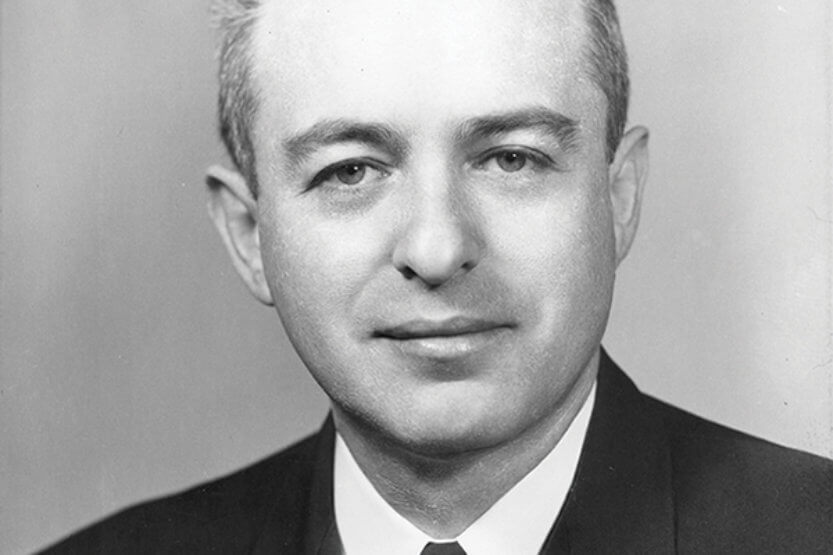Ingenious: Professor of Poverty
 U of I anthropology professor Oscar Lewis defined “the culture of poverty” and sparked both kudos and outrage with his classic study, The Children of Sánchez. (Image courtesy of UI Archives)
U of I anthropology professor Oscar Lewis defined “the culture of poverty” and sparked both kudos and outrage with his classic study, The Children of Sánchez. (Image courtesy of UI Archives) Oscar Lewis was no stranger to controversy—or to accolades and honors. This was certainly the case after the U of I professor of anthropology published The Children of Sánchez in 1961.
Critics bristled at the book’s blunt portrayal of deep poverty in Mexico and the less-than-flattering things that poor people said about the government. In 1964, Lewis and his publisher were criminally charged with obscenity and defamation of the Mexican people and government. The charges were dismissed the following year. The Children of Sánchez won numerous awards, was adapted for film and stage, and was named one of the best books of the 1960s by Time magazine.
Lewis worked closely with his wife, Ruth Maslow Lewis, HON ’88, researching poverty in different countries. In Five Families, his 1959 book about Mexico, he introduced the concept of the “culture of poverty,” a subculture that is handed down from generation to generation along family lines. Critics claimed Lewis was blaming the poor for their condition. But he also was lauded for deftly bringing the stories of people caught in poverty to life in their own words. The “culture of poverty” concept attracted international recognition and entered the national conversation during the war on poverty initiatives of the Lyndon Johnson administration.
One of Lewis’ friends, U of I psychology professor Joseph McVicker Hunt, regarded him as “an artist in scientist’s clothing.” In 1967, this artistry won a National Book Award for La Vida—Lewis’s examination of six extended families living in a barrio in San Juan, Puerto Rico. Again, the book’s publication ignited controversy.
In 1969, Lewis began field work in Cuba. Just 16 months later, his research permit was revoked. The government went on to confiscate his field data and arrest at least one of the people he had interviewed for his research. In 1972, Cuban leader Raul Castro publicly charged him as a spy, but by that time Lewis had died, succumbing to heart failure in 1970 just before his 56th birthday.
The controversies ignited by Lewis and his work are long past, but his scientific and artistic achievements live on. Anthropology legend Margaret Mead called The Children of Sánchez “one of the outstanding contributions of anthropology—of all time.”
Sources: University of Illinois: Engine of Innovation, University of Illinois Press, 2017; U of I Archives

